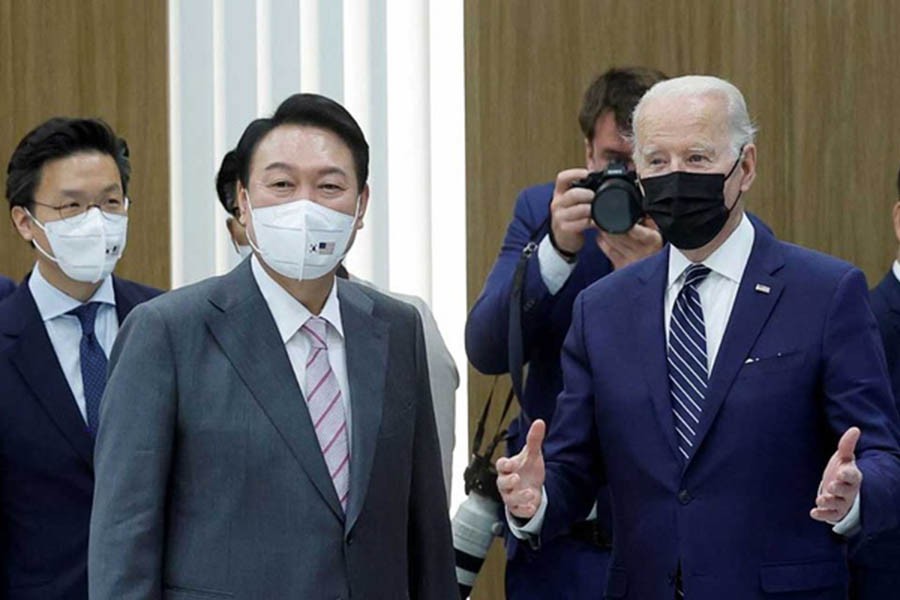Joe Biden's first stop on his inaugural trip to Asia as US president on Friday was a massive Samsung Electronics semiconductor plant, underscoring a message of economic security with an eye on China.
Biden landed at the US air base in Osan, south of Seoul, and immediately drove to Samsung's nearby factory, the largest semiconductor plant in the world. There he greeted South Korean President Yoon Suk-yeol, a relative newcomer to politics, for the first time in person.
In remarks at the plant, Biden said the future would be written in the Indo-Pacific and now was the time for the United States and like-minded partners to invest in each other, reports Reuters.
The two leaders toured the plant, which the White House called a model for a new $17 billion factory that Samsung plans to build in Taylor, Texas.
"This plant represents the close bonds that exist between our two countries," Biden said, noting that the chips are a critical national security priority.
Advanced chips for functions such as mobile, 5G, high-performance computing and artificial intelligence, have become a focal point of competition with China and concerns over global supply chain disruptions caused by the pandemic and the war in Ukraine.
Yoon said Biden's visit to the plant highlighted how the decades-old US-South Korea alliance was growing and becoming more comprehensive through cooperation on microchips.
He also urged Biden to provide incentives for South Korean and US businesses to invest in each other's countries.
Samsung Electronics Vice Chairman Jay Y Lee was excused from attending an accounting fraud trial hearing on Friday in order to host the US president's tour.
Countering China's presence in the region is a key Biden theme on the trip, but South Korea is likely to strike a cautious tone in public on the topic given Beijing is Seoul's top trading partner.
South Korea is expected to be among the inaugural members of Biden's Indo-Pacific Economic Framework (IPEF), which will be announced during the trip to set standards on labour, the environment and supply chains.
Asked about Beijing's opposition to the IPEF, Yoon told reporters on Friday that joining the framework does not have to conflict with South Korea's economic ties with China.
"There is no need to see it as a zero-sum," he said.
Hyundai Motor Co has been working on plans to build a new electric-vehicle manufacturing plant in the United States, and an announcement could coincide with Biden's visit.
Biden and Yoon will also be faced with the weighty issue of North Korea. Leader Kim Jong Un abandoned a freeze on intercontinental ballistic missile testing and appears poised to resume testing of nuclear bombs, perhaps while Biden is in the region.


